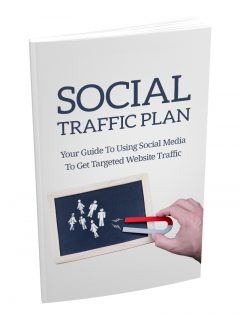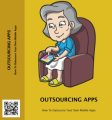 License Type: Master Resell Rights
License Type: Master Resell Rights  File Type: ZIP
File Type: ZIP
 SKU: 62501
SKU: 62501  Shipping: Online Download
Shipping: Online Download
Sample Content Preview
Introduction
In 2006, Facebook expanded its already highly successful network of college students to include work networks. A year later, Twitter came onto the scene as a new marketing tool for businesses to better interact with their customers. When Facebook bought out Instagram in 2012, the number of users on Instagram more than doubled and currently has more than 300 million active users.
Over the last decade, social media has evolved drastically. Every day, more businesses are creating their profiles, and even more potential customers are also creating their profiles. Social media is no longer a novel concept for businesses but rather a necessity for building a reputation and brand awareness.
Online digital marketing has numerous advantages for businesses. First, the information travels fast, and it is very cost effective. Also, there are no geographical boundaries, and everyone can use it. When a new social media platform is introduced, there tends to be a mad dash to secure a business username and gain new followers.
Then many businesses seek advice on how to grow their followers and convert potential customers after the fact. Unfortunately, this often fails. To be successful on social media, a business needs to be sure that they have a solid understanding of their brand. It takes much more than a simple business website to succeed in today's digital age.
Social media has become a tool for establishing your brand. Consumers are connected 24/7, and social media is how you can keep up. How many times have you heard a friend or family member say that they heard about a new product or found a cool article on a social media site?
When it comes to social media, you need to view it as a golden opportunity to drive traffic back to your website and convert potential customers. Businesses can easily create noise for consumers, but with a robust social media brand, you can stand out and use social media to reach your business goals.
It is essential that you spend your time on the social media platforms that best represent your brand. If you don't have an established brand, this guide will help you understand the importance of building a brand portfolio. Before you venture off into uncharted social media waters, you need to understand what your business is and who you are trying to reach.
You might want to consider taking some time to watch from a distance and make some observations regarding how other companies are using the platforms and engaging with their customers. You need to develop a solid understanding of the demographics of each of the different social platforms and the kind of conversations taking place. Many businesses fail at harnessing the power of social media because they lack planning and branding. If you can understand who you are, establishing yourself on social media will feel less daunting.
As a business, you don't need to get your name on every social media site. Social media isn't a one size fits all solution. You need to decide which platforms will best help your company reach its goals. Particular social media platforms are more suitable for displaying your artistic skills, while others can introduce you to the software communities.
Once you determine the perfect platform and the right audience, you need to figure out a way to strengthen these relationships to satisfy the customer in a way that they become your marketers by spreading a good word about your brand.
Chapter 1 – Utilizing Facebook
Facebook is one of the most complex social networking sites for business because they are always changing the algorithms, which can make it challenging to reach your targeted audience.
Facebook offers both profiles and business pages. Profiles allow you to add friends and are a two-way connection to other members of the site. When Facebook business pages, users ‘like’ the pages, which allow businesses to push content out to the users who ‘like’ them.
Unlike profiles, business pages are public, which means anyone can follow a link to see everything that has been posted on the page. With a business page, you can also set up paid advertising for both Facebook and Instagram.
For single-man operations, like media personalities and authors, a Facebook profile may be enough. However, for most companies, you should be creating a business page. It is essential that you link your business page to your personal profile. The advantage of using both your own profile and business page is that you can utilize your friends' list form your personal profile on your business page.
With profiles, you can tag friends in business posts, invite them to events, and ask them to ‘like' your page, while you also monitor conversations. Understanding your audience based on the content they post is not available with your business page, which is why you should have your personal profile linked.
The best way to grow your network with Facebook is to connect with the professional contacts on your personal profile. Be sure to add any media contacts, collaborators, other people in your industry, and potential clients. You might also be able to find potential friends in various Facebook groups or in the comments of other Facebook pages.
- License: Master Resell Rights
- Category:Ebooks
- Tags:2019 Ebooks Master Resale Rights








